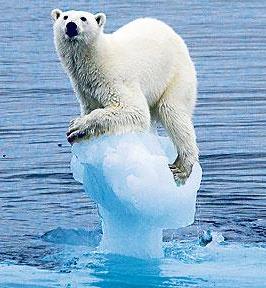Your clients may be shrugging their shoulders over climate change and the severe weather that comes with it, but there is data out there brokers can use to their advantage to show what coverage can better protect them – and how they can become more ‘climate smart.’
“Insurance is one of the key ways we manage our risk from extreme weather events,” says Josh Laughren, director of the climate and energy program for World Wildlife Fund Canada. “While fire has traditionally been the leading contributor to insurance claims, it's now being overtaken by flooding and water damage, and this is almost certainly due to climate change.”
For Laughren, becoming ‘climate smart’ means understanding and reducing the impact you have on climate change, and the impact climate change will have on you.
“Most of the measures to reduce your risk of flooding and water damage are the same as the insurance industry has advocated in the past – just with more urgency,” he says. “Obviously, knowing whether you are buying or building on a flood plain is important, as is checking if you have basic precautions in place, like a back-water valve.”
An insurance company or broker can offer much more specific advice about what you can do to take control of the risk, adds Laughren.
The top five causes of water damage are:
1. Sewer backup
2. Burst plumbing pipes and appliance hoses
3. Leaking hot-water tanks
4. Overflowing sinks and toilets
5. Leaking roofs
“Make sure your client understands their insurance policy: what coverage do they have?” says Laughren. (continued.)
#pb#
Also, most people don't realize that your risk is in large part determined by choices beyond the direct control of the average policyholder. Brokers play an important role in helping customers prevent and mitigate water-related risks. Often it can be a matter of asking the right questions. Here are five key questions that RSA recommends you ask your client:
1. Have you ever been impacted by flooding or any other kind of water damage? Or do you know someone who has?
2. Have there been any changes or renovations to your property? We should review these to see if any changes are needed to your policy.
3. Would you know what to do if water damage affected your property?
4. Would you like to learn more about how to prevent water damage?
5. Do you know how quickly your insurer would be able to react if you made a water-related claim?
Also, most people don't realize that your risk is in large part determined by choices beyond the direct control of the average policyholder.
“How is your municipality renewing aging infrastructure? Is your city promoting and investing in green roofs, a healthy tree canopy and permeable surfaces that help absorb rainfall?” says Laughren. “Have different levels of government conserved wetlands upstream of your neighbourhood? Becoming climate smart is a shared responsibility, and how governments are responding is going to become more urgent and more relevant to you and your property very quickly.”
The torrential rains and flooding from last summer are an excellent example that brokers can use to explain the effects of climate change.
“Toronto’s huge rainfall last summer was unusual not just in how hard it rained, but in how long it rained that hard,” says Laughren. “The analogy I like is that of a baseball player on steroids.”
For example, players hit home runs without steroids (just as we’ve always had severe weather), so you can’t point to any one home run and ‘prove’ it was caused by steroids.
“But over a season, you can safely predict that on average, a baseball player on steroids will hit more home runs and hit them farther. We’re looking at weather on steroids,” explains Laughren. “Two things keep me up at night. First, we are seeing these warning signs of stronger weather, changing patterns and melting arctic ice at a paltry-sounding 0.8 C warming so far. Through choices we have already made, we are already locked in to more warming, and are on pace for a potential 4-6 Celsius warming within a century.” (continued.)
#pb#
In 2013, severe weather events cost the Canadian insurance industry $3.2 billion in insured losses - the highest in Canadian history.
To better understand this, RSA has partnered with WWF for several years now. This is a somewhat exclusive partnership, explains Laughren.
“When you talk about the effects of climate change, you have to talk about risk and probabilities. Most people want certainty. But risk is the currency of the insurance industry, which is why I think this sector has been much quicker than most to realize consequence and urgency of climate change,” says Laughren. “Since risk affects rates, it means rising insurance rates are how most people, at least we urbanites, will experience the effects of climate change first.”
Laughren points out that given the polarized political nature of the climate debate in Canada, the industry has a unique opportunity to talk to people about climate change in a way that impacts them immediately and directly.
“That’s why WWF partnered with RSA: they have been global leaders in the industry in understanding the urgency to minimize, and adapt to, climate change,” he says. “They are preparing for what the world will look like in 30 years, including offering tools and information to their brokers and clients to help them make informed choices that link minimizing risk with better environmental choices.”


